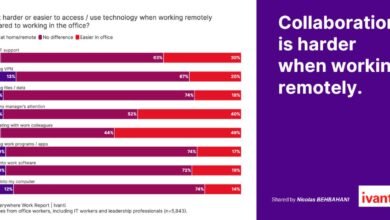
By | Jessica Sweet
If you have wanted to quit your job for a while and then landed your dream position elsewhere, you may be so excited that you want to shout it from the rooftops. You fantasize about strolling into your boss’s office and telling them how you really feel about the latest project that has landed on your desk or giving the office gossip something to get their teeth stuck into. However, it is far better to leave your job on good terms and smile sweetly as you hand in your resignation. Here are some tips on how to leave your job on good terms.
Why Should You Leave Your Job on Good Terms?
If you are leaving, then surely it doesn’t matter what you say or do when you are on your way out the door right? It’s unlikely they will fire you now. Although this might be true in theory, you may still need a reference from your company in the future. It may be that you already have a job lined up but what happens when you want to leave that one? A prospective employer may still request a reference that goes back five or even 10 years and you want to ensure that they hear good things about you.
Most industries are smaller than they appear. People who have worked in their field for some time know a lot of the same people. It may be that you work with some of your colleagues in the future or get interviewed for a new job by someone you know. If you leave on bad terms or give people a reason to remember you negatively then the chances are they will. Your negative reputation could follow you around for years and it could even lead to you being turned down for roles you would have otherwise been offered. Leaving on good terms is imperative if you want to retain a good industry reputation.
Offer a Written Resignation
You should always put your resignation in writing but that doesn’t mean you have to go into a lot of details. State that you wish to offer your resignation and the date that you want this to be effective from. You may wish to give a brief reason for your decision such as you have been offered an alternative role or you wish to learn new skills, but you don’t need to elaborate. Your resignation may be kept on file in case you ever apply to the company for a reference so make sure it is short, sweet, and polite.
Work Your Notice
It may be tempting to clear your desk and go home the minute you have formally resigned but this is one of those negative things you will be remembered for. Make sure you have checked what your notice period is and work it, clearing up any loose ends and helping your replacement to settle in if appropriate. You may be counting the minutes in your head but if you leave on professional terms, you will be remembered for this.
Tie Up Loose Ends
Tying up loose ends before you leave does not have to consist solely of helping to train a replacement or making sure that your key clients have a seamless transition. Use your notice period to clear your computer of any personal messages and ask your employers for copies of your personal achievements such as training courses you have participated in or proof that you were the top salesperson for six months in a row. This could help you to succeed when applying for positions in the future.
Exit Interviews
Many companies offer exit interviews to employees who are working their notice. The purpose of this is so that your employer can get an idea of what makes people leave their jobs and use this as a way of improving staff retention in the future. This may be a chance to air any grievances but make sure you only offer constructive criticism. Employers often use similar exit interview questions so if you are feeling nervous, you could always practice answering these in advance.
Keep In Touch
Make sure you take contact details and keep in touch with old work colleagues. You do not need to stop networking within your industry just because you have left one company. You never know how useful these might be in the future.
A professional exit will build your industry reputation and help you to maintain the networks you have built up so far. Make sure that you are remembered for all the right reasons as this will help rather than hinder your career.






